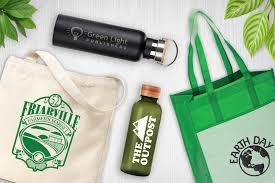Shopping has shifted in ways that feel more meaningful now than ever before. It's no longer only about what we buy, but also about how our choices impact the environment. I've seen more people, including myself, become curious about eco-friendly brands and what they truly offer. Sustainable shopping is not just a passing idea—it's a lifestyle that balances quality products with respect for the planet.
Why Sustainable Shopping Matters
When I think about why sustainable shopping matters, the biggest reason is its long-term impact. The fashion, food, and consumer goods industries produce massive amounts of waste every year. By supporting eco-friendly brands, we reduce the pressure on natural resources while also sending a strong signal to businesses that sustainability is important.
This shift benefits everyone. It lowers carbon footprints, supports ethical labor practices, and creates healthier communities. It's reassuring to know that my purchases contribute to positive change. I've noticed how much more intentional I've become, and I realize that each small choice adds up.
What Makes a Brand Eco-Friendly
Not every brand that labels itself eco-friendly truly follows through, so it’s worth knowing what to look for. A brand earns its place in sustainable shopping when it meets several criteria.
Some important signs include:
- Sustainable Materials: Items made from organic cotton, bamboo, recycled plastics, or biodegradable materials.
- Ethical Production: Companies that ensure fair wages and safe working conditions for workers.
- Minimal Packaging: Packaging made from recyclable or compostable materials.
- Transparency: Brands that clearly share details about their supply chains and practices.
- Durability: Products that are built to last, reducing waste over time.
These markers give me confidence that I’m choosing wisely. Once you know what to look for, it’s easier to recognize brands that walk the talk.
Popular Eco-Friendly Brands This Year
I’ve been following several brands that stand out for their commitment to sustainability. They offer a range of products that make it easier to shop consciously without sacrificing quality.
Some of the top eco-friendly names I’ve come across this year include:
- Patagonia: Known for outdoor gear and clothing, Patagonia has a long track record of sustainability and repair programs.
- Allbirds: Their shoes use natural and recycled materials while keeping production emissions low.
- Tentree: A clothing brand that plants ten trees for every purchase, combining style with environmental action.
- Etsy Sustainable Shops: Many independent sellers create handmade, eco-friendly items with minimal environmental impact.
- Seventh Generation: Household essentials made with plant-based ingredients and recyclable packaging.
Each of these brands proves that eco-friendly choices don’t limit options—they expand them.
How Sustainable Shopping Fits Into Daily Life
Integrating eco-friendly shopping into my daily routine has been easier than I expected. It’s about making gradual shifts rather than trying to overhaul everything at once. For example, I started by replacing single-use items with reusable ones. Then I moved toward choosing clothes from ethical brands and cutting down on impulse buys.
Small actions add up, and some of the habits I’ve adopted include:
- Bringing reusable bags and bottles everywhere I go.
- Supporting local businesses with sustainable products.
- Choosing quality items that last longer instead of fast fashion.
- Researching before buying to ensure products align with eco values.
Even though the changes feel small, they contribute to a bigger positive impact over time.
In the middle of exploring these changes, I sometimes compare it to simple decisions in other areas of life. Picking the refreshing option of a blue raspberry lemon mr fog reminds me of how choosing the right eco-friendly brand feels both enjoyable and rewarding. It's about discovering something that fits well with my lifestyle while also offering lasting value.
The Future of Eco-Friendly Brands
I believe the momentum for eco-friendly shopping will only grow stronger. As more people prioritize sustainability, businesses will continue to innovate and expand their offerings. It's an exciting time to be a consumer because the choices available are becoming both greener and more diverse.
The future may bring products designed entirely from waste materials, or systems where items are endlessly reused and recycled. This circular approach to shopping ensures that nothing goes to waste. I find this possibility inspiring because it shows how creativity and sustainability go hand in hand.
The real shift, however, comes from everyday people making intentional decisions. Every purchase becomes a vote for the kind of world we want to live in. Supporting eco-friendly brands doesn't just mean getting good products—it means participating in a larger movement toward healthier living and a healthier planet.
As I reflect on this, I also think about the variety in choices. Just like picking a cherry mr fog switch adds a burst of something new, exploring eco-friendly brands gives me that same sense of discovery. Each brand has its own style, story, and impact, making the journey of sustainable shopping as enjoyable as it is responsible.
And at the heart of it all, it's about trust and satisfaction. Knowing that my shopping habits align with my values creates a sense of fulfillment. It's like finding the right mr fog hobbies that match exactly what I'm looking for—reliable, enjoyable, and consistent with my personal goals.
Final Thoughts
Sustainable shopping isn't just a trend; it's a conscious way of living that benefits individuals, communities, and the planet. By choosing eco-friendly brands, we support ethical practices, reduce waste, and make a positive difference. For me, the journey has been about learning, adjusting, and enjoying the satisfaction of making responsible choices. This year's eco-friendly brands show that sustainability and quality can go hand in hand, making it easier for all of us to shop with purpose.

